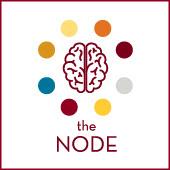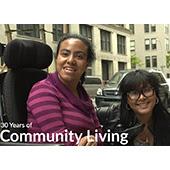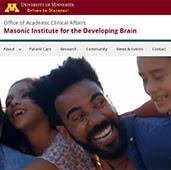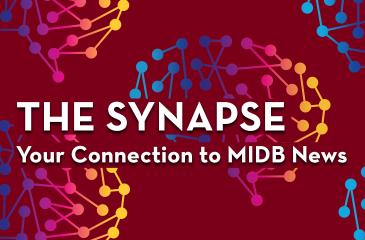The Synapse: Sept. 2021
The Masonic Institute for the Developing Brain’s new facility will open later this fall and final preparations for opening are being undertaken. The 116,000 square foot facility, which sits on a 10.2 acre site on the Mississippi River, includes:
- The Center for Neurobehavioral Development Clinical Research space, which includes testing rooms, a new MRI unit, and other brain imaging equipment to facilitate research studies
- Office space for the Institute on Community Integration, MIDB central administration, and faculty and staff from departments in the Medical School and the College of Education and Human Development
- M Health Fairview outpatient clinic focused on pediatric neurobehavioral conditions
- The Blythe Brenden-Mann Community Center, which includes event and conference room spaces
- Drawing on the facility’s connection to the Mississippi River, several murals are featured throughout the building with the first floor murals reflecting the flow of the river, and the second floor murals reflecting the treetops that run along the river
- Shared spaces also evoke the facility’s riverside setting, with conference rooms on the first floor named after Minneapolis/St. Paul waterways, and areas on the second floor named after native trees
- Walking trails, recreation and playground facilities
Be sure to watch the video above to see the progress on the new MIDB facility. For more information about the facility including information on COVID protocols, workspace, parking and transportation, and more, review the MIDB FAQ document.

MIDB researchers and colleagues recently received a new three-year award to address health disparities through a study of a telehealth-enabled early diagnostic and intervention package for children with autism spectrum disorder (ASD) who are waitlisted for diagnostic evaluation or intervention services. Children and families face striking barriers to accessing these critical services, resulting in significant delays to ASD diagnosis and early intervention. Families in rural areas or in culturally and linguistically diverse communities often face increased disparities in accessing these services. Through a randomized trial, researchers will investigate how to improve outcomes for these populations through a supplemental telehealth-based evaluation and Naturalistic Developmental Behavioral Intervention (NDBI) delivered by caregivers with remote support from interventionists. “Our goal is to eliminate health barriers and disparities for children with ASD by improving the effectiveness of evaluation and intervention delivered via telehealth on child outcomes of communication, social-communication, and challenging behavior, as well as improving communication outcomes for children who are not verbally communicating and improving family quality of life, caregiver feelings of efficacy, caregiver experiences of stress, and caregiver use of NDBI strategies,” said Jessica Simacek, PhD, PI of the study and director of the TeleOutreachCenter. |

MIDB’s Community Engagement and Education Core aims to make community engagement more accessible. Through a partnership with neuroscience-focused engagement programs across the University, the group is working to eliminate financial barriers, provide training and help advocates translate their work into an academic product. With support from a Research Infrastructure Investment Program grant, the group named itself the Neuroscience Opportunities for Discovery and Equity (NODE) and is working toward becoming a centralized infrastructure for community-based participatory research, training and resources. For example, NODE recognized that many University groups don’t have dedicated funds to hire staff or to buy activities and supplies to make an impact in community outreach. To address this, NODE is acquiring equipment and supplies that anyone can use. Read more about NODE. |

With its $1 million philanthropic gift in 2020, the Otto Bremer Trust was one of the first donors to help establish the MIDB. Since 1971, the Otto Bremer Trust has been a key philanthropic partner for the University, enabling the U of M to tackle critical issues that impact metro areas as well as Greater Minnesota. The Otto Bremer Trust's investment in MIDB will support interdisciplinary training, telehealth, and community outreach to increase access to families.Learn more about philanthropy efforts to advance MIDB’s groundbreaking work in early-child and adolescent brain health. |

A newly published book tells the 30-year story of how people with intellectual and/or developmental disabilities (ID/DD) have lived, worked, and received support services as the United States transitioned away from institutional care. The book, 30 Years of Community Living for Individuals with Intellectual and/or Developmental Disabilities (1987-2017), was produced by the Institute on Community Integration for the Administration for Community Living. Using accessible language, it weaves the latest reports from three longitudinal data projects of national significance with real-life, personal accounts by people with ID/DD to inform policymakers, legislators, and others. Learn more. |

Responding to a wave of truancy and other pandemic-related problems in schools last year, St. Louis County in northern Minnesota will implement Check & Connect throughout most of the schools in the county over the next three years. The Check & Connect Student Engagement Intervention, created by the Institute on Community Integration, works with K-12 students who show warning signs of disengagement with school and who are at risk of dropping out. The process involves mentors who monitor students’ attendance, behavioral issues, and grades, and who develop a supporting relationship with each student. Learn more. |

We are excited to share our recently launched new and improved website that features new information on our research cores, a new expert directory and more.
|
Other News
Learn more about the important implications early brain development has for mental health outcomes.
The students will work with MIDB researcher Casey Burrows.
MIDB is the first Minnesota facility to partner with RxART to enhance its physical environment through visual art.



